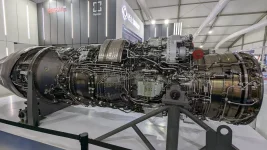
The Indian Air Force's (IAF) ambitious modernization plans have hit a major snag due to GE Aerospace's failure to deliver F-404 engines for the Tejas Mk1A fighter jet on schedule. The US engine manufacturer is currently facing a significant delay of 10 months, raising serious concerns about the future of India's indigenous fighter jet program.
While GE cites global supply chain disruptions, particularly in sourcing essential materials like titanium, as the primary reason for the delay, industry insiders suggest that the problems run deeper. The aviation industry, in which GE is a key player, suffered immensely during the COVID-19 pandemic, resulting in substantial workforce reductions, including a 10% cut in its US workforce.
The timing of these issues coincides with GE's decision to split into three independent companies, a move that was completed in April 2024. GE Aerospace, the newly formed entity, is now solely focused on the aviation business. However, the company's market position appears to be weakening.
While it continues to supply engines for the F-18 Super Hornet, orders for F-404 variant have been declining. Although GE Aerospace has secured export deals with Korea and Sweden, these countries have established their own production lines, limiting the output of the US manufacturing facility.
The delay in the delivery of the F-404 engine has significant ramifications for India's defense preparedness. The Tejas Mk1A, designed specifically for this engine, has no viable alternative. The indigenous Kaveri engine is still years away from being production-ready, and the once-considered RD-33 is no longer a feasible option.
HAL, the state-run aerospace company responsible for Tejas production, finds itself in a difficult situation. Despite the engine shortage, it continues to assemble aircraft, hoping to integrate the F-404s as soon as they become available. However, prolonged delays could necessitate a reassessment of the program, potentially leading to significant cost overruns and schedule slippages.


